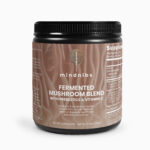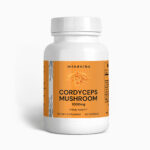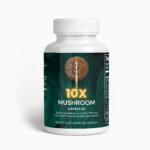
“Beyond Painkillers: Can Supplements Help Manage Chronic Pain?”
Chronic pain is a debilitating condition that affects millions of Americans every day. Whether it’s from back issues, migraines, arthritis or any other type of condition, sufferers have to find some way to manage the constant discomfort. Painkillers have long been the go-to solution, but with the ongoing opioid epidemic, many people are turning to alternative methods to relieve their pain. One option that has gained popularity in recent years is supplements. While supplements can’t replace medication altogether, there is encouraging research indicating that some supplements may be able to alleviate chronic pain. In this article, we will explore the benefits of taking supplements for chronic pain, and the science behind their potential to improve pain management.
1. “The endless search for effective chronic pain relief”
Chronic pain is a debilitating condition that significantly affects an individual’s quality of life. It is defined as pain that persists for more than three to six months, and it can be caused by various medical conditions such as arthritis, fibromyalgia, and multiple sclerosis. Most people living with chronic pain take prescription medications such as opioids to manage their symptoms, but these medications come with adverse effects, addiction, and dependency issues.
Finding effective pain relief for chronic pain is an endless search for many. Fortunately, there are alternative treatments that can help manage pain symptoms without the harmful side effects of prescription drugs. For example, physical therapy and exercise have been proven to alleviate chronic pain by improving flexibility, strengthening muscles and joints, and reducing inflammation. Additionally, acupuncture, massage therapy, and cognitive behavioral therapy are other effective options for pain management.
Moreover, diet and lifestyle changes can also significantly help reduce pain symptoms. Consuming an anti-inflammatory diet that is rich in fruits, vegetables, whole grains, and lean proteins can help reduce inflammation, which is a common cause of chronic pain. Engaging in stress-reducing activities such as yoga, meditation, and deep breathing techniques can also help ease pain symptoms. By incorporating these changes into daily life, individuals can manage chronic pain effectively and safely. Trying these natural remedies is worth considering before turning to opioid medications that can cause even more problems.
2. “The downsides of long-term use of painkillers”
Painkillers are a ubiquitous remedy for a variety of pain conditions. However, with prolonged use, painkillers can have harmful effects on the body. Below are some of :
- Developing a tolerance: Continuous use of painkillers can result in a user developing a tolerance for the medication. This means that the same dosage of medication that previously provided relief will no longer be effective, requiring the user to take more medication to achieve the same effect.
- Addiction and dependency: Long-term use of painkillers can lead to addiction and dependency on the medication. Addiction can affect a person’s physical and mental health and lead to social, economic, and legal problems. Withdrawal symptoms can occur when the user stops taking the medication, making it challenging to quit.
Organ damage: Prolonged use of painkillers can cause organ damage, especially the liver and kidneys. These organs are responsible for filtering medication from the bloodstream and eliminating it from the body. Long-term use of painkillers can overwork the organs, leading to liver and kidney failure, which can be life-threatening.
Therefore, it is essential to seek medical advice before taking any painkillers, especially if you have a history of addiction, liver, or kidney problems. Remember to adhere to the prescribed dosage and duration to reduce the risk of side effects.
3. “Exploring the potential benefits of supplements as an alternative”
The use of supplements as an alternative to traditional medicine has become increasingly prevalent in recent years. While the effectiveness of supplements is still a topic of debate, there are potential benefits that come with their use:
- Increased nutrient intake: Supplements can be used to increase the intake of nutrients that are difficult to consume in adequate quantities through a normal diet. For example, vegetarians may take iron supplements to avoid anemia.
- Support for specific health conditions: Supplements may be beneficial for people with specific health conditions. For instance, omega-3 supplements are believed to have anti-inflammatory properties that could be helpful in managing conditions such as rheumatoid arthritis.
- Non-invasive treatment: Supplements are a non-invasive alternative to traditional medicine. This makes them a good option for people who prefer natural remedies or who want to avoid potential side effects from prescription medication.
However, it is important to remember that not all supplements are created equal. Some may be ineffective, while others may interact negatively with other medications. Additionally, the FDA does not regulate supplements in the same way it does prescription drugs, meaning that there is less oversight to ensure the safety and efficacy of these products.
Before trying any supplements, it is essential to speak with a healthcare professional to determine if they are a good option for your specific needs. A professional can also help ensure that you are taking the correct dosage and that the supplement will not interact negatively with any other medications you may be taking.

4. “Can vitamin D help manage chronic pain?”
Although vitamin D is commonly known for its role in keeping our bones healthy, recent research has suggested that it may also have a significant impact on chronic pain management. Chronic pain is a complex condition that can have a serious impact on quality of life, so any potential new treatments are always of great interest to both patients and doctors.
So how does vitamin D help manage chronic pain? Well, there are a few different mechanisms at work. Firstly, vitamin D has been shown to have anti-inflammatory properties, which can help reduce pain levels in conditions such as osteoarthritis and fibromyalgia. Additionally, vitamin D is involved in the regulation of neurotransmitters, which are chemicals in the brain that play a role in pain perception. By keeping these neurotransmitters in balance, vitamin D can help reduce the intensity of chronic pain.
If you’re living with chronic pain, it’s definitely worth discussing the potential benefits of vitamin D with your doctor. There are a few different ways to increase your vitamin D intake, including spending more time in the sun, eating vitamin-D-rich foods such as fatty fish and egg yolks, or taking vitamin D supplements. It’s important to remember, however, that too much vitamin D can be harmful, so it’s important to follow your doctor’s recommendations carefully. In conclusion, while there is still much to be learned about vitamin D and chronic pain, there is certainly enough evidence to suggest that it is a promising avenue for future research.

5. “Omega-3 fatty acids and their role in reducing inflammation”
When it comes to reducing inflammation in the body, omega-3 fatty acids have been shown to be incredibly effective. Inflammation is a natural response by the immune system, but when it becomes chronic, it can lead to a host of health problems, including heart disease, arthritis, and even cancer.
One of the ways that omega-3 fatty acids can help reduce inflammation is by blocking the production of certain molecules that promote it. These include prostaglandins and leukotrienes, which are produced by the body in response to stressors like injury or infection. By inhibiting the production of these molecules, omega-3s can help reduce the levels of inflammation in the body.
In addition to reducing inflammation, omega-3 fatty acids have a number of other health benefits. They have been shown to improve brain function, reduce the risk of heart disease, and even help prevent depression. So if you’re looking for a natural way to reduce inflammation and improve your overall health, consider adding more omega-3s to your diet. Some great sources include fatty fish like salmon and tuna, as well as flaxseeds, chia seeds, and walnuts.
6. “Curcumin’s potential as a natural pain reliever”
Curcumin, the active ingredient in turmeric, has garnered attention in recent years for its potential as an effective natural pain reliever. Some studies have shown that curcumin can help reduce inflammation, which is a significant contributor to pain. Additionally, curcumin has been found to have comparable pain-relieving effects as some commonly used over-the-counter pain medications.
One of the beneficial properties of curcumin is that it does not have the same side effects as traditional pain medicines. Painkillers like NSAIDs (nonsteroidal anti-inflammatory drugs) can cause stomach discomfort, ulcers, and bleeding with prolonged use, whereas curcumin does not pose such risks. This makes curcumin an attractive option for individuals hoping to avoid potentially harmful side effects.
Another benefit of curcumin is that it is a natural substance and has been used for medicinal purposes for centuries, making it a more “tried-and-true” option compared to some newer, more synthetic drugs. While more research is necessary to fully understand the impact of curcumin as a natural pain reliever, preliminary studies have shown promise. For those who prefer natural remedies, exploring the potential of curcumin as a painkiller may be a worthwhile avenue to pursue.
In conclusion, curcumin’s potential as a natural pain reliever is a promising development in the healthcare industry. Curcumin’s ability to alleviate pain without many of the risks associated with traditional painkillers makes it an appealing option for individuals who struggle with pain management. While more research is needed to understand the full extent of curcumin’s benefits, there is evidence to suggest that it is worth exploring for its potential as a natural and effective pain-relieving option.
7. “Maximizing the benefits of supplements for chronic pain management
Chronic pain is a debilitating condition that affects millions of people worldwide. Some people have found that taking supplements can help alleviate pain and improve their quality of life. Here are some ways to maximize the benefits of supplements for chronic pain management.
1. Choose high-quality supplements: The supplement industry is largely unregulated, so it’s important to choose reputable brands that use pure, high-quality ingredients. Look for supplements that have been independently verified by third-party testing organizations.
2. Follow recommended dosage: Taking more than the recommended dosage of supplements can cause harm and increase the risk of side effects. It’s important to follow the dosage instructions on the label or as recommended by your healthcare provider.
3. Synergize supplements: Some supplements work better in combination with others. For example, omega-3 fatty acids can enhance the anti-inflammatory properties of curcumin, a compound found in turmeric. It’s important to consult with a healthcare provider or a licensed naturopathic doctor to determine the best combination of supplements for your specific needs.
4. Incorporate supplements into a healthy lifestyle: Supplements are not a magic cure-all for chronic pain. They work best when combined with a healthy lifestyle that includes regular exercise, a balanced diet, stress reduction techniques, and getting enough sleep. Incorporating supplements into an overall wellness plan can increase their efficacy and improve overall health.
By following these tips, you can maximize the benefits of supplements for chronic pain management. However, it’s important to remember that supplements should not be a substitute for medical treatment. If you have chronic pain, it’s important to work with your healthcare provider to determine the underlying cause and develop a comprehensive treatment plan that includes supplements, medication, and other therapies as needed.
In conclusion, supplementing your daily routine with natural products may help to manage and reduce chronic pain symptoms. However, you should always speak to your doctor before starting any new type of treatment, even if it’s a supplement. This is especially important for those dealing with chronic pain, as it is essential to keep watch over any changes in the body and to stay as healthy as possible. With this in mind, find the natural supplement that suits you best and start your journey towards managing chronic pain.

























